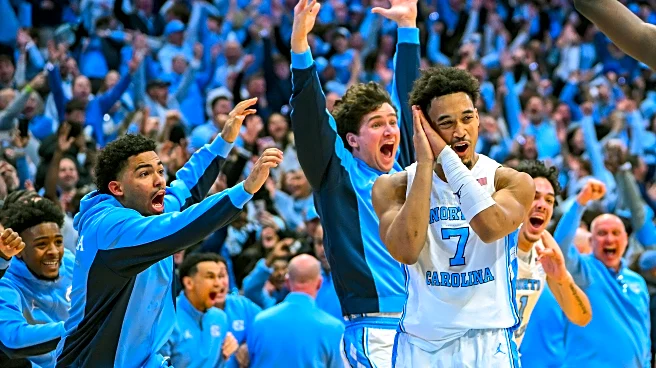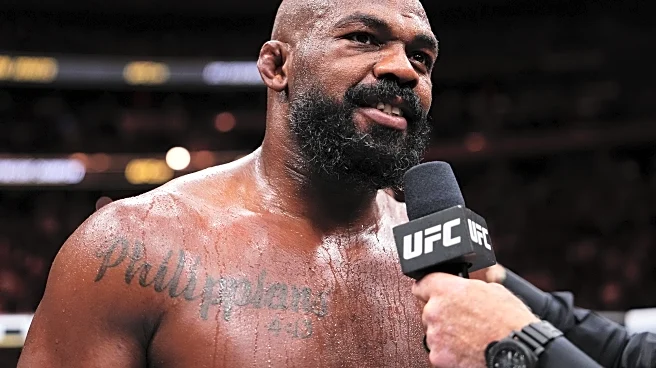What is the story about?
What's Happening?
George R.R. Martin, the creator of the Game of Thrones series, spoke at New York Comic Con about the prolonged delay in releasing 'The Winds of Winter,' the sixth book in his 'A Song of Ice and Fire' saga. Martin expressed his dissatisfaction with missing deadlines and breaching contracts, acknowledging the frustration among fans. Despite the delay, Martin has been involved in various other projects, including writing spin-off books and contributing to video games and TV series. He defended his choice to work on diverse projects, stating that he remains interested in 'Winds of Winter' but also enjoys other creative endeavors.
Why It's Important?
The delay in 'The Winds of Winter' has significant implications for fans and the publishing industry. Martin's extensive involvement in other projects has led to concerns about the completion of the 'A Song of Ice and Fire' series, which has a dedicated fan base. The delay affects the publishing timeline and the anticipation surrounding the series' conclusion. Martin's comments highlight the challenges authors face in balancing multiple creative projects while meeting fan expectations. The situation underscores the broader issue of creative freedom versus contractual obligations in the entertainment industry.
What's Next?
Martin continues to work on 'The Winds of Winter,' although no specific release date has been announced. Fans and industry stakeholders are likely to keep a close watch on Martin's progress and any updates regarding the book's completion. The author's involvement in other projects, such as the animated Hercules movie and AMC's 'Dark Winds,' suggests that he will maintain a diverse portfolio of work. The ongoing interest in Martin's projects indicates that his creative output will remain influential in the entertainment industry.
Beyond the Headlines
The delay in 'The Winds of Winter' raises questions about the pressures authors face in the modern publishing landscape. Martin's situation highlights the tension between artistic exploration and fulfilling contractual obligations. The discourse around his work reflects broader cultural conversations about the value of creative freedom and the expectations placed on popular authors. As Martin navigates these challenges, his experience may influence how other authors approach their careers and manage fan expectations.















